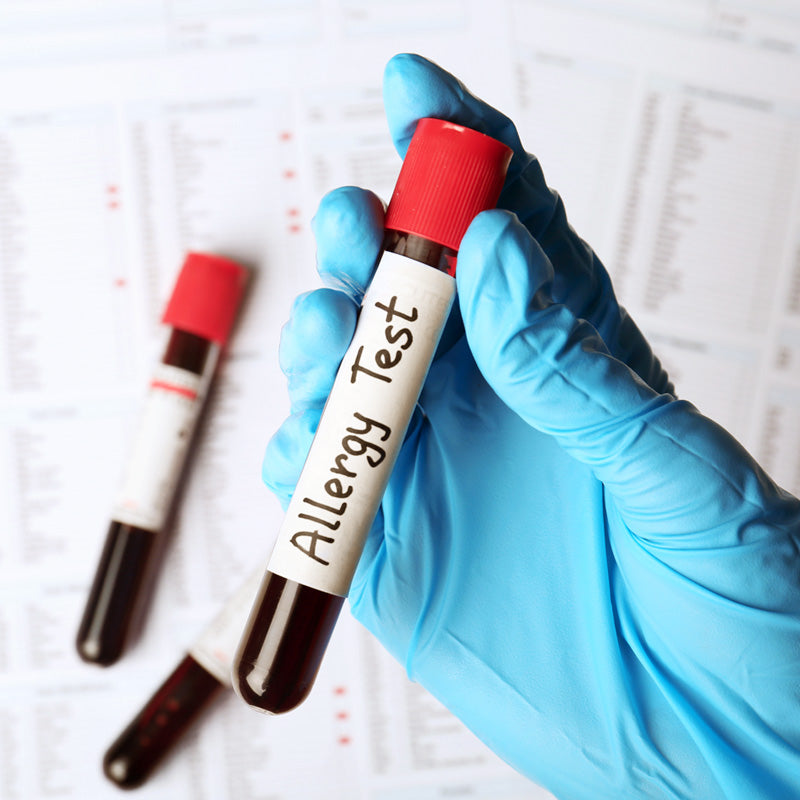
All about Allergy Testing
Share

Many people often mistake symptoms of an allergy to be something less serious and this is because most of us opt for self-diagnosis rather than to see a doctor and be certain about it. This can result in inaccuracy in management or handling of what the true condition is. Self-diagnosing is also dangerous especially if it’s an allergy that can lead to life-threatening anaphylaxis.
Allergy Testing
If you’re wondering what allergy testing is, it is commonly done on people with suspected allergies like insect bites, asthma, allergic rhinitis, or food allergies. These help people to confirm or conclude that their symptoms are allergies in order to help them properly handle their condition.1
When To Conduct Allergy Testing?

If a child or infant shows symptoms of allergies, it may be the best time to visit a doctor and get diagnosed. If you see symptoms like an inflamed or irritated nose, asthma, adverse reactions to food, reaction to insect sting or medications, and skin rashes, then you may need to see your physician asap.2
Testing For Allergies
There are several ways to test a person for allergies, and it is commonly conducted in the allergist’s office. Once the allergy has been confirmed and allergens specified, your allergist will discuss plans and choose the suitable therapeutic interventions which may include avoidance strategies, medication, diet modification, and allergy shots.2

Types Of Allergy Testing
Allergy testing is done by your doctor and/or allergist and it is strongly advised to not do it yourself. An allergic reaction may lead to anaphylaxis and the presence and supervision of your doctor and/or allergist are very crucial for your safety and of course the results of your tests.
- Skin test is the most common kind of testing. It is done using a small amount of allergen placed on your skin, then this area is pricked or scratched. If you’re positive with the allergy, you’ll experience a little swelling.3
- Intradermal tests are more sensitive than skin tests and may be used when prick test results are inconclusive. Your allergist will use a syringe to inject some allergen under your skin to specify the allergen and reactions.3
- Challenge tests are mostly conducted when your doctor suspects that you have a food or drug allergy. The doctor will let you eat or inhale a very small amount of possible allergens under the close supervision of an allergist.3
- Blood test is conducted by getting blood samples and then it is tested for allergies. This test is pricier than the other tests and results may also take longer.3
Is allergy testing safe and accurate?
As long as the testing is done by your doctor and allergist, then we may say that it is safe. Testing is done by exposing you to possible allergens so your symptoms and allergic reaction are at a high percentage. When you consult your doctor, they will explain to you the tests that will be conducted and safety measures that they’ll take to prevent it from escalating to a life-threatening situation.4 Accuracy of allergy testing depends on the person being tested and there’s no one test that is applicable to all possible allergies that a person has. It means that if you have several symptoms, the probability of doing several types of tests is more likely to happen.
Disclaimer: This article is only an overview in order for us to have an idea of what allergy testing really is and why medical professionals see it as an important step to help better the lives of allergy sufferers. We wanted to clarify that these should not replace a visit to your doctor and medical professionals’ advice and recommendations.
Resources:
ASCIA (https://www.allergy.org.au/patients/allergy-testing/allergy-testing)
Acaai.org (https://acaai.org/allergies/allergy-treatment/allergy-testing/allergy-testing-children-and-infants)
www.aaaai.org (https://www.aaaai.org/conditions-and-treatments/library/allergy-library/all-about-allergy-testing)
Mayoclinic.org (https://www.mayoclinic.org/tests-procedures/allergy-tests/about/pac-20392895)
